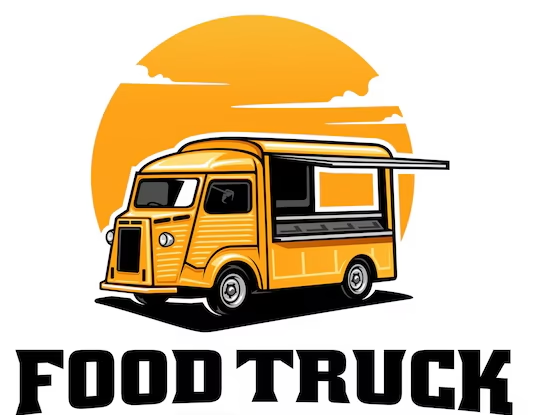Keep on Truckin’: Your Essential Guide to Food Trailer Maintenance
Your food trailer is more than just a vehicle; http://yourdesignedfoodtrailer.shopit’s the engine of your culinary dreams. Just like any machine, it requires regular maintenance to keep it running smoothly, safely, and profitably. Neglecting maintenance can lead to costly repairs, unexpected downtime, and even potential health and safety hazards.
Think of food trailer maintenance as an investment in your business’s longevity. By proactively addressing potential issues andhttp://commercialtrucktrader.com following a consistent maintenance schedule, you can prevent major problems, extend the lifespan of your equipment, and ensure that you’re always ready to serve up delicious food to your hungry customers.
Why Regular Maintenance is Crucial:
- Prevent Costly Repairs: Catching small problems early can prevent them from escalating into major (and expensive) repairs.
- Minimize Downtime: Regular maintenance reduces the risk of breakdowns and keeps your trailer on the road and serving customers.
- Ensure Food Safety: Proper cleaning and maintenance of your equipment are essential for preventing foodborne illnesses.
- Maximize Equipment Lifespan:http://craigslist.org Regular maintenance extends the lifespan of your equipment, saving you money in the long run.
- Maintain Compliance: Many health and safety regulations require regular maintenance of food service equipment.
- Protect Your Investment: Your food trailer is a significant investment, and regular maintenance helps protect its value.
Your Comprehensive Food Trailer Maintenance Checklist:
This checklist covers essential maintenance tasks that should be performed regularly. The frequency will vary depending on your usage and specific equipment.
I. Daily Maintenance:
- Clean All Cooking Surfaces: Wipe down griddles, fryers, stovetops, and ovens after each use.
- Clean and Sanitize Food Prep Areas: Wipe down cutting boards, counters, and other food prep surfaces.
- Empty and Clean Grease Traps: Regularly empty and clean your grease traps to prevent clogs and odors.
- Clean Sinks and Faucets: Scrub sinks and faucets with soap and water.
- Clean Spills Immediately: Wipe up any spills to prevent messes and potential hazards.
- Check and Empty Trash Cans: Keep trash cans clean and emptied regularly.
- Sweep and Mop Floors: http://usedvending.comKeep floors clean and free of debris.
- Inspect and Clean Serving Window: Clean your serving window to provide a clear view for customers.
- Check Fluid Levels in Generator (if applicable): Oil, coolant, etc.
II. Weekly Maintenance:
- Clean and Sanitize Refrigeration Units: Clean the interior and exterior of your refrigerators and freezers.
- Calibrate Thermometers: Ensure that your thermometers are accurate to maintain proper food storage temperatures.
- Inspect and Clean Exhaust Hood and Filters: Clean your exhaust hood and filters to remove grease and prevent fires.
- Clean and Sanitize Ice Machine: Prevent mold and bacteria growth.
- Check and Tighten Gas Connections: Inspect gas connections for leaks.
- Check Fire Extinguisher: Ensure it’s properly charged and easily accessible.
- Check Tire Pressure: Maintain proper tire pressure for safe towing.
- Inspect Lights: Check all interior and exterior lights to ensure they are working properly.
III. Monthly Maintenance:
- Deep Clean Cooking Equipment: Thoroughly clean your griddle, fryer, oven, and other cooking equipment.
- Descale Water Heater: Remove mineral buildup from your water heater.
- Inspect and Clean Plumbing Lines: Check for leaks and clogs.
- Grease Moving Parts: Lubricate hinges, wheels, and other moving parts.
- Inspect and Clean Generator (if applicable): Change the oil, check the air filter, and clean the spark plug.
- Inspect and Clean Brakes: http://ebay.comCheck brake pads and rotors for wear.
- Inspect Safety Equipment: Fire extinguisher first aid kit, etc.
- Review and Update HACCP Plan: Ensure your Hazard Analysis and Critical Control Points (HACCP) plan is up to date.
IV. Annual Maintenance:
- Professional Equipment Inspection: Have your cooking equipment, refrigeration units, plumbing, and electrical systems inspected by a qualified technician.
- Wheel Bearing Service: Repack or replace wheel bearings.
- Inspect Suspension: Check for worn or damaged suspension components.
- Inspect and Seal Roof: Check for leaks and seal any cracks.
- Professional Generator Service (if applicable): Tune-up and maintenance.
Tips for Effective Food Trailer Maintenance:
- Keep a Logbook: Maintain a logbook to record all maintenance tasks and repairs.
- Follow Manufacturer’s Recommendations: http://facebook.com/marketplaceFollow the manufacturer’s instructions for cleaning and maintaining your equipment.
- Train Your Staff: Train your staff on proper cleaning and maintenance procedures.
- Schedule Regular Maintenance: Set aside time each week or month to perform maintenance tasks.
- Don’t Procrastinate: Address small problems immediately before they become bigger problems.
- Hire Professionals When Needed: Don’t hesitate to hire qualified technicians for complex repairs.
The Bottom Line:
Regular food trailer maintenance is not just a chore; http://bing.comit’s an essential investment in your business’s success. By following a consistent maintenance schedule, you can prevent costly repairs, minimize downtime, ensure food safety, and keep your food trailer running smoothly for years to come. So, roll up your sleeves, grab your tools, and get ready to keep on truckin’!
What are your best tips and tricks for keeping your food trailer in tip-top shape? Share your wisdom in the comments below!

